Dry black beans are easy to cook, and they’re much tastier than canned. In this post, I’ll walk you through the method of cooking dried black beans to prepare them for use in recipes. I’ve also included storage and freezing techniques.
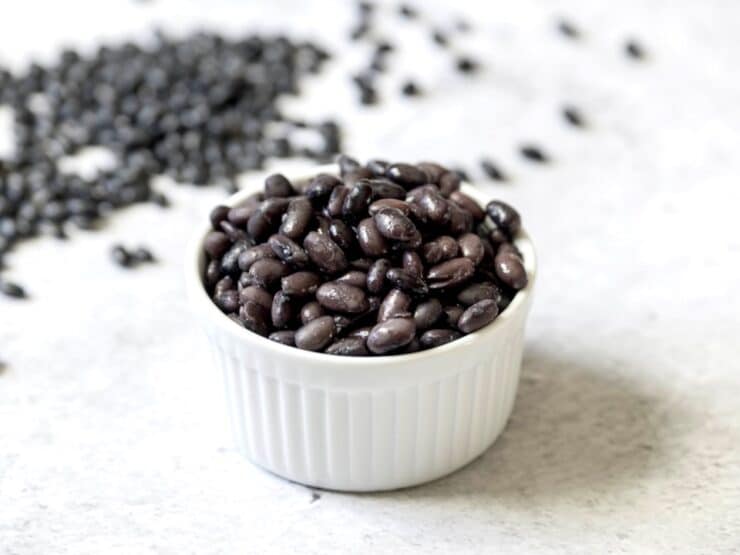
I have been trying to do more and more “from scratch” in my kitchen lately. I am convinced that overconsumption of processed food is at the root of many health problems; the more we can “get real” with our ingredients, the better. Preparing dried beans at home is a great place to start. Black beans are super easy to prepare at home, and they can be used in any recipe that calls for canned.
The process of soaking, cooking, and storing beans is easy, economical, and healthy – you can control the salt content in your beans, rid them of enzymes that impede digestion, and avoid the BPA lining that can leech into canned goods.
The method below uses a ratio of 10 cups of water per pound of dried black beans. If you plan to use a different amount of beans, please adjust accordingly using this 10-to-1 ratio.
Recommended Products:
We are a participant in the Amazon Services LLC Associates Program, an affiliate advertising program designed to provide a means for us to earn fees by linking to Amazon.com and affiliated sites. As an Amazon Associate I earn from qualifying purchases.
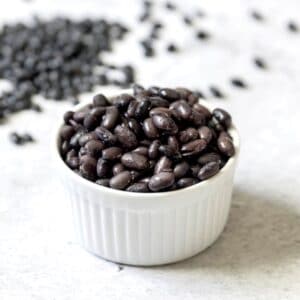
How to Soak, Cook and Freeze Dried Black Beans
Ingredients
- 1 pound dried black beans (please refer to instructions below if you plan to cook more or less)
- 20 cups water, divided
- Salt (optional)
You will also need
- large pot with lid, colander, freezer bags or containers (optional)
NOTES
Instructions
- The method below uses a ratio of 10 cups of water per pound of dried black beans, if you plan to use a different amount, please adjust accordingly using this ratio.In a large pot or bowl combine the black beans with water at a ratio of 10 cups of water per pound of dried beans. Soak overnight. NOTE: black beans don't absolutely need to be presoaked before cooking, however I always soak them for three reasons - it speeds up the cook time, helps the beans to cook more evenly, and makes them easier to digest.Once the beans have soaked, you will notice that they have increased in size, indicating that they have absorbed moisture.

- To quick soak the beans, you will need 1 hour. Place the black beans into the bottom of a large pot and cover with water. Bring beans to a boil. Let them boil for 3 minutes, then remove from heat. Soak 1 hour. The beans will expand, so make sure you cover by several inches of water to allow for this.After soaking using either method, drain and rinse the beans.

- Place the beans in a large pot and cover again with the same ratio of fresh water. It is important to use fresh water for boiling; the soaking water contains oligosaccharides, released from the beans during soaking, that can lead to digestive discomfort. Add salt to the cooking water if desired to give the beans more flavor (I use about 1 tablespoon salt for every 10 cups of water). Place on the stovetop and bring to a boil, then reduce to a simmer. Simmer for 1 hour, or until you reach desired tenderness. I recommend stirring the beans a few times throughout the cooking process so that the beans at the bottom of the pot don’t soften before the beans at the top.

- Once the beans have finished cooking, drain them in a colander.

- If freezing, allow the beans to cool completely. You can speed this process by rinsing them with cold water, just be sure to drain them completely. Transfer them to a freezer safe container (I recommend resealable freezer bags) and freeze until needed. I like to measure out 1 ¾ cups of beans in each bag, which is equivalent to the amount in a standard sized can. They will keep in the freezer for up to 6 months.

- When ready to use your frozen beans, remove the beans from the freezer and thaw. They can be reheated on the stovetop, added to soups and stews or used however you would use canned beans.

Nutrition

tried this recipe?
Let us know in the comments!
Black Bean Recipe Ideas
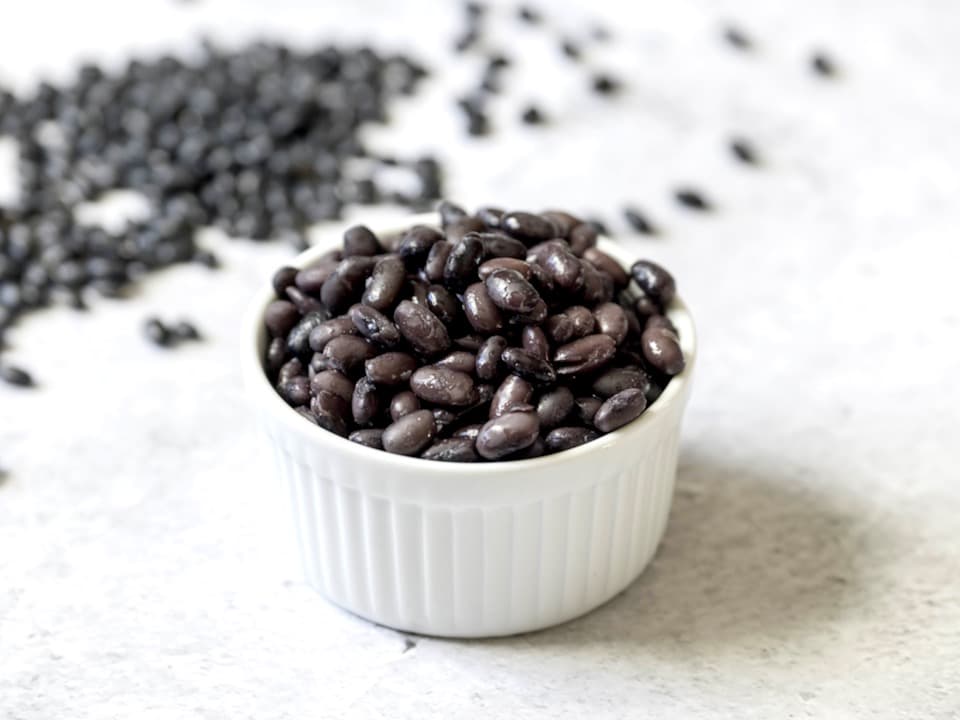
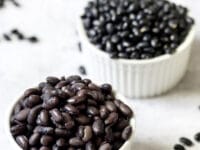
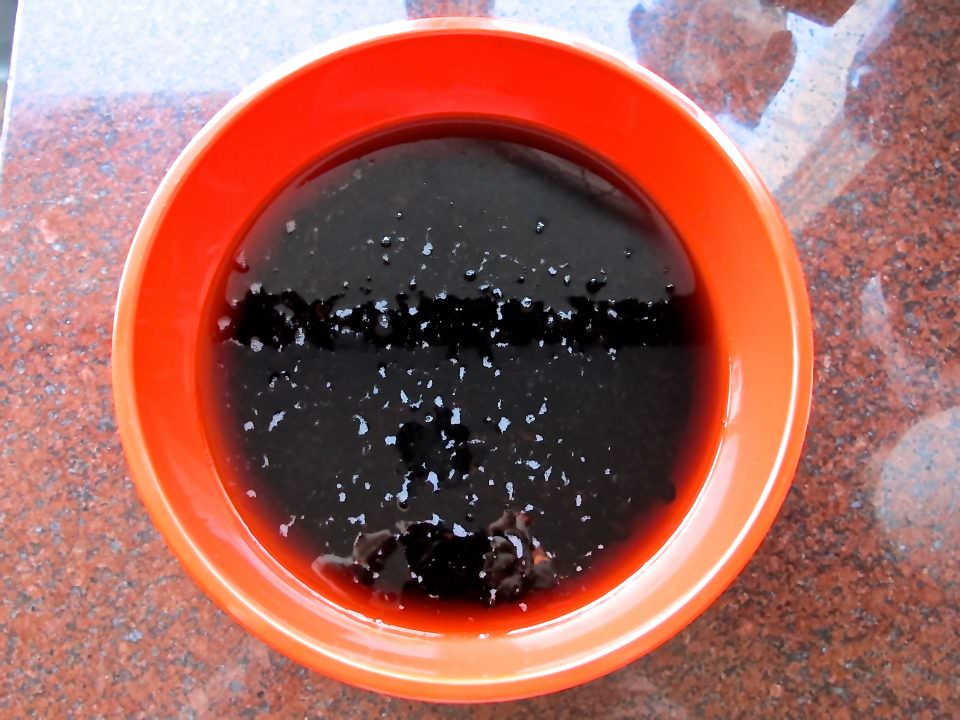
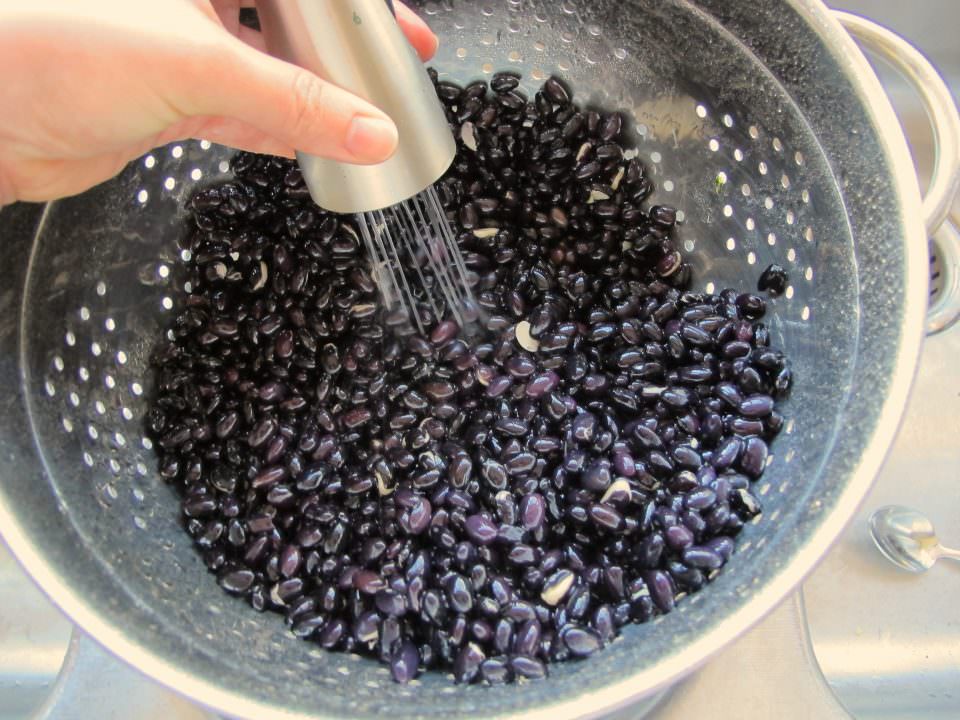
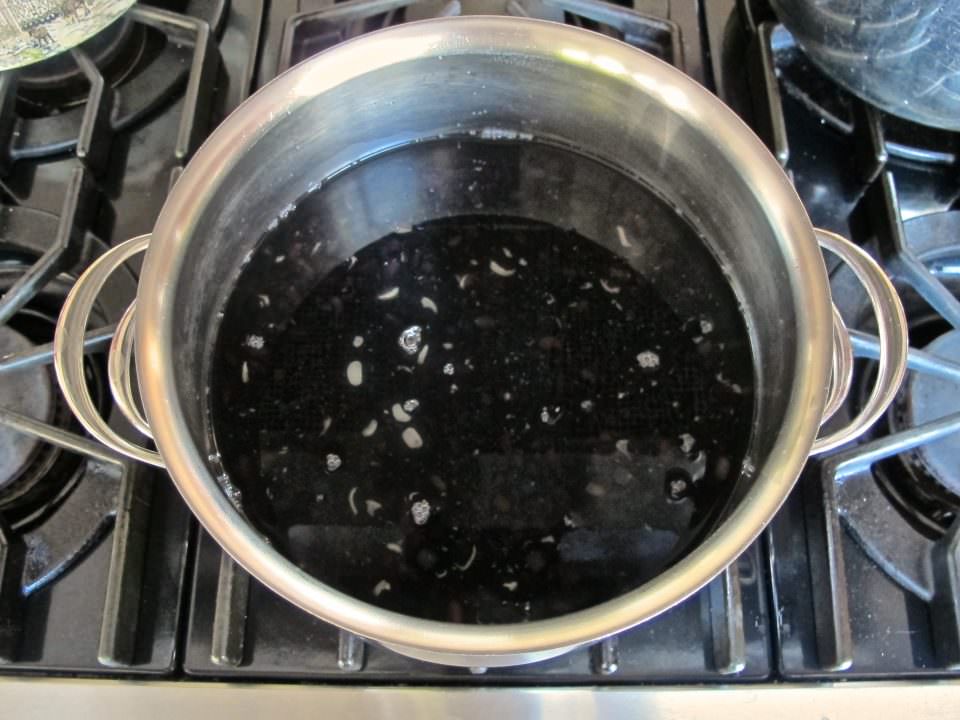
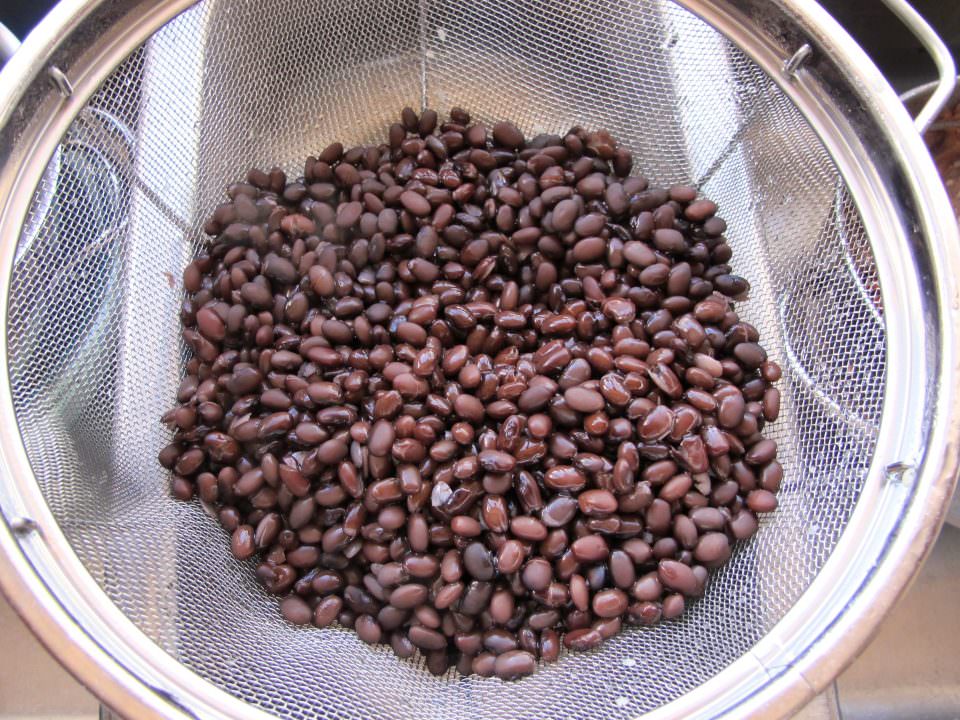
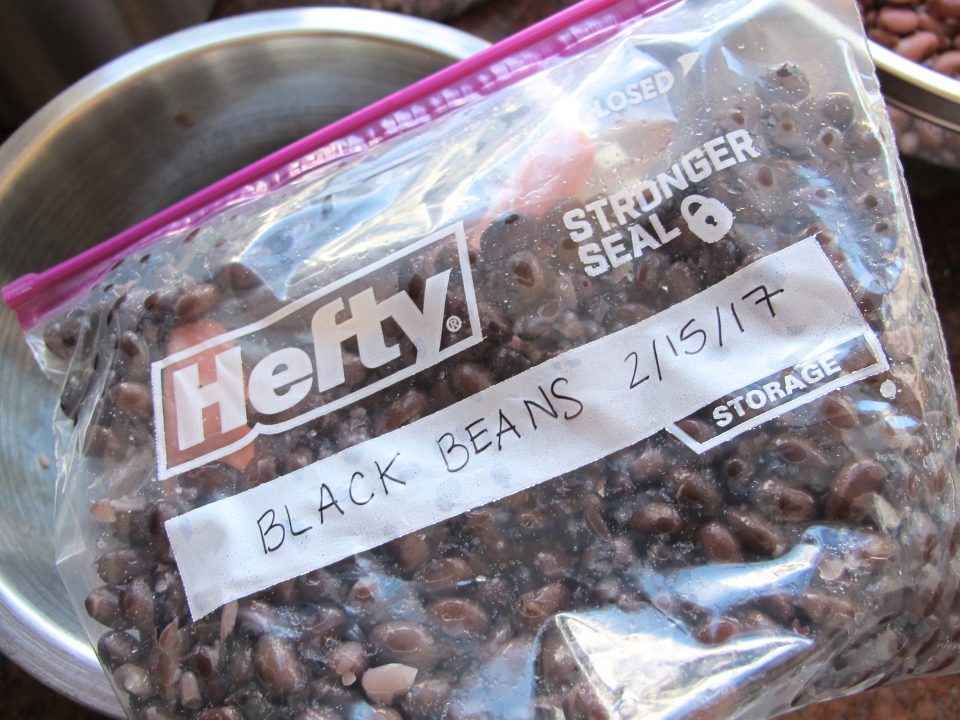
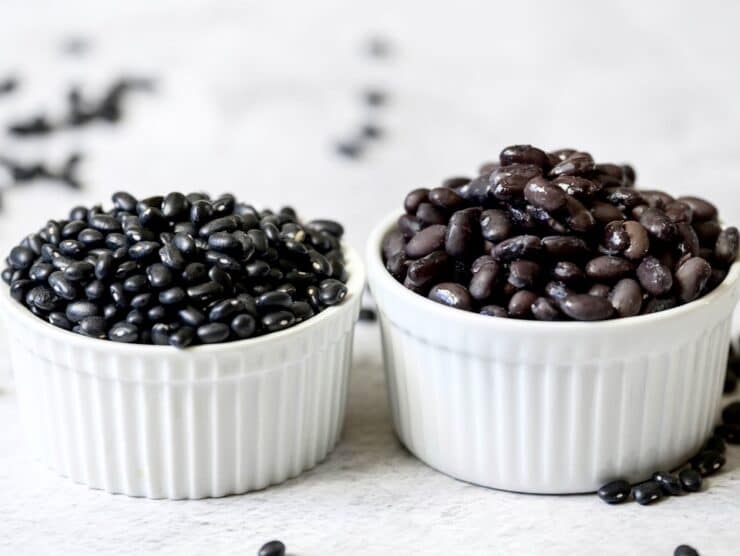
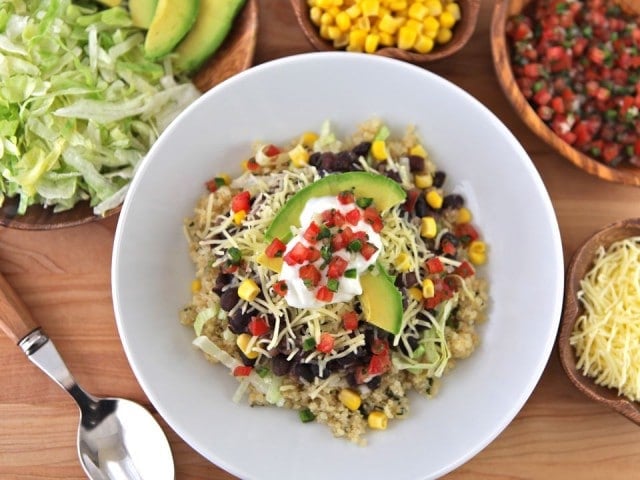
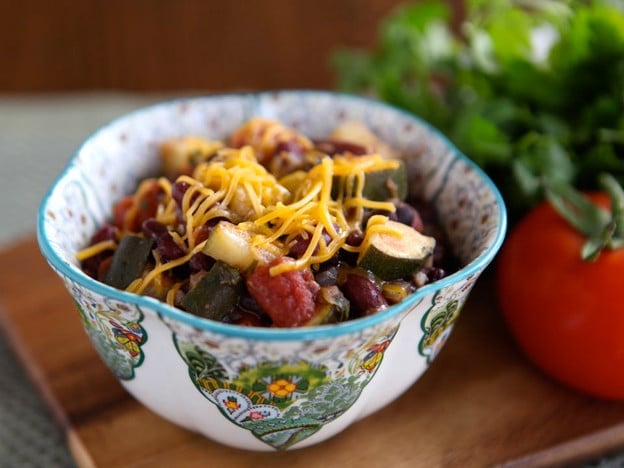


Excellent results! Simple to understand and easy to follow!
Help me I have a beans problem. I’m sure i’ll get past it by the time anyone responds but.
I pre soaked kidney beans overnight, I cooked them, they were mushy and good and some used in chili. I put the rest in containers to cook and then freeze.
Tonight I thawed my pre cooked frozen beans and warmed them, but they’re hard. Not frozen but like they are uncooked. I’m very confused and not sure how to fix it so I keep cooking them but it’s been around an hour.
At first on medium with water and oil in a pan and covered, then let it boil off, then added more water and am cooking it low. Why are they taking so long? I thought they were cooked before?
Help
I don’t typically like to freeze soaked beans – I only freeze them after they are cooked. So not sure what is going on, but it may be because you froze them soaked rather than cooked.
This makes me the happiest person, the time you spent writing this has made my week, thank you so much.
Simple and really good. Adjust liquid to the occasion. With less, it’s a luncheon main dish.
Hi, Tori. Do you sometimes freeze the beans in their cooking liquid? If using for a soup, it would seem to make sense.
Hi Becky, I have never done that, as most recipes call for beans without liquid. But if you had specific plans for a soup, I don’t see why that wouldn’t work.
Hi There!
If I want to soak, then cook black beans for soup, do I use leftover water from cooked beans for soup, or does one need to dispose of both soaking & cooking water & then add fresh water for soup?
Thanks!
René ?⚘
Hi René, the general consensus seems to be that you should dispose of soaking water, but cooking water is ok to reuse. 🙂
It’s actually dangerous to use glass in the freezer unless it’s specifically designed for the purpose. Extreme changes in temperate will cause glass to eventually shatter. ie reheating frozen food in the glass jar it’s been stored in.
There are silicone Ziploc bags that are made to be reusable. There is also silicone covers for bowls if you want don’t want the silicone to directly touch your food.
Agreed, that’s why I rarely use glass when freezing.
It’s really important not to add the salt until the beans have become tender in the cooking process. Adding the salt at the beginning could cause the beans to either not get tender or take an extraordinary long time to become tender. Also adding a garlic clove or two to the beans and water adds a hint of flavor without being too over powering and allows easy removal when beans are done.
Sorry this is absolutely false. It is a complete myth that salt causes tough beans. Please do some research and stop spreading this persistent myth! Beans are much much tastier when cooked with salt, they do not take any longer to cook and if anything they hold their shape better while still being creamy.
Do you have a method for white beans too please or is it the same? Thanks
The method is very similar. I will be posting a white bean tutorial soon!
This was such a helpful post. I now feel confident to make my own beans for recipes. I’ve got a bunch in the freezer now to use whenever we need them. Thank you for taking the time.
I’m curious about methods to preserve beans after they have been cooked by dehydration. Dry products properly stored can last quite a long time and we only get one crop a year.
So how can I cook the presoaked black beans in a pressure cooker? How long?
The reasalble bags are plastic, all plastic (even
the BPA free)will leach chemicals into your food.
Glass jars/containers or stainless containers are a healthier option for freezing.Also as a reminder most of glass jars lids are inside are lined with BPA, so don’t overfill the jars to avoid touching
the inner lid.
If I soak my black beans then use them in a chili in a crockpot, do I still have to cook them before using them in the chili? Thanks!
Hi Roxanne– it really depends on the recipe you are using, the length of time you’re cooking in the crock pot, etc. Generally speaking soaked beans should soften up with slow cooking, but you would need ample liquid. It’s a case-by-case situation based on your recipe of choice.
I just bought black and red kidney beans but haven’t decided what to do with them yet. I have always used the fast cook method except I put in baking soda. Your thoughts on this. They do seem to get soft and even mushy quickly; but that could be because I walk away from the stove and they cook longer than 3 min. I’ve used this always on Great Northern, Navy, Pinto’s and mixed beans. Your thoughts on this please. My reasoning is digestive problems. It helps immensely if I don’t overeat.
I have been soaking my black beans on the counter for the past 3 Days. Time got away from me. Should I throw them away or Can I cook them and store them. They smell fine.
Thanks
Cassandra
Did you change the water 1-2 times daily during the 3 days? If not you risk food borne illness. They might possibly be fine, but I’m not sure I would risk it unless you had changed the water each day.
Thank you so much for posting how to soak black beans etc…i really needed to make sure i was doing this the proper way,your beautiful and i love your blog take care.
This is EXACTLY the kind of article I was hoping to find – thank you!
I do this all the time trying to cut down on food from a can. I freeze in 1 cup measurements. So much healthier. If you cook the beans, then freeze them, they are ready for salad and tacos. So yummy!
Hi Tovi. Thank you for your wonderful recipes.
Question:
Would I prepare hard red kidney beans the same way?
(meant to say “dried” red kidney beans)
Hi Chana! The method is very similar, they don’t take quite as long to soften. Also don’t expect them to turn out as vibrant dark red as canned kidney beans, the cooked dry ones tend to be on the pinker side. I’ll be posting a tutorial for kidney beans next week!
In the past I’ve always just placed the soaked uncooked beans in the freezer, ready to take out for cooking when needed. This seems much more practical. I also have a ready supply of soaked lentils and chickpeas in the freezer, ready for when I need them for cooking rice, soup, etc.
Hi Vivian! The reason I generally pre-cook the beans is that most recipes call for canned or cooked beans, not soaked (although some do). Whatever works best for the recipes you most frequently use works for freezing. 🙂